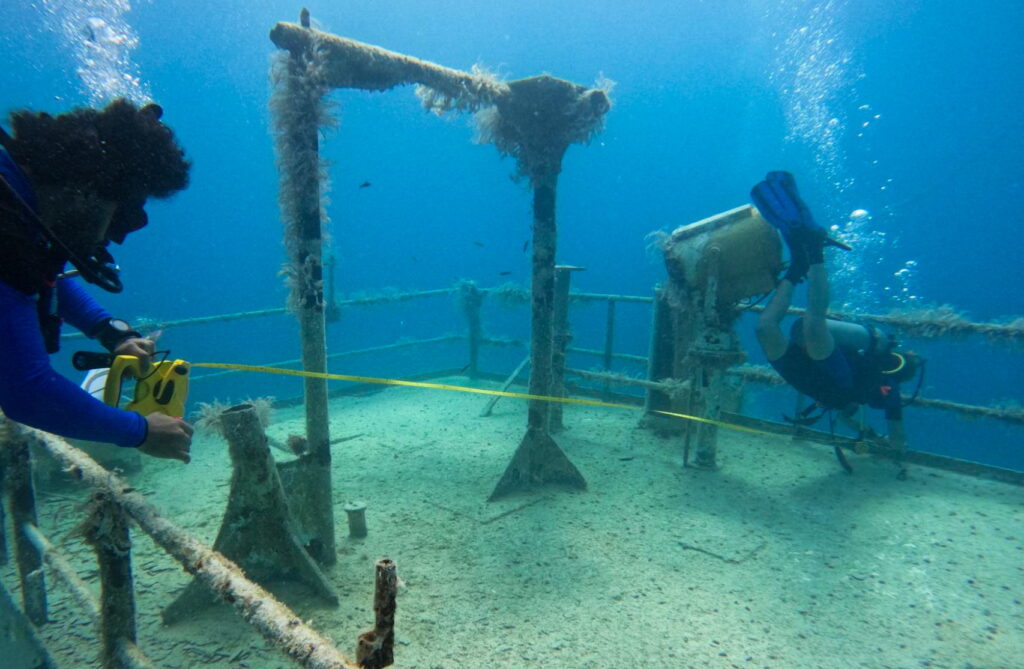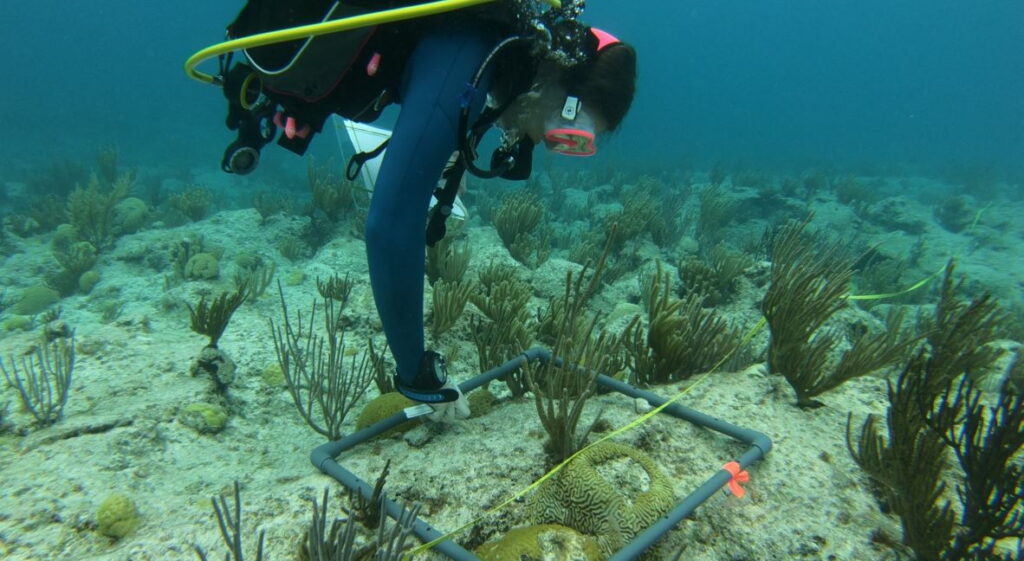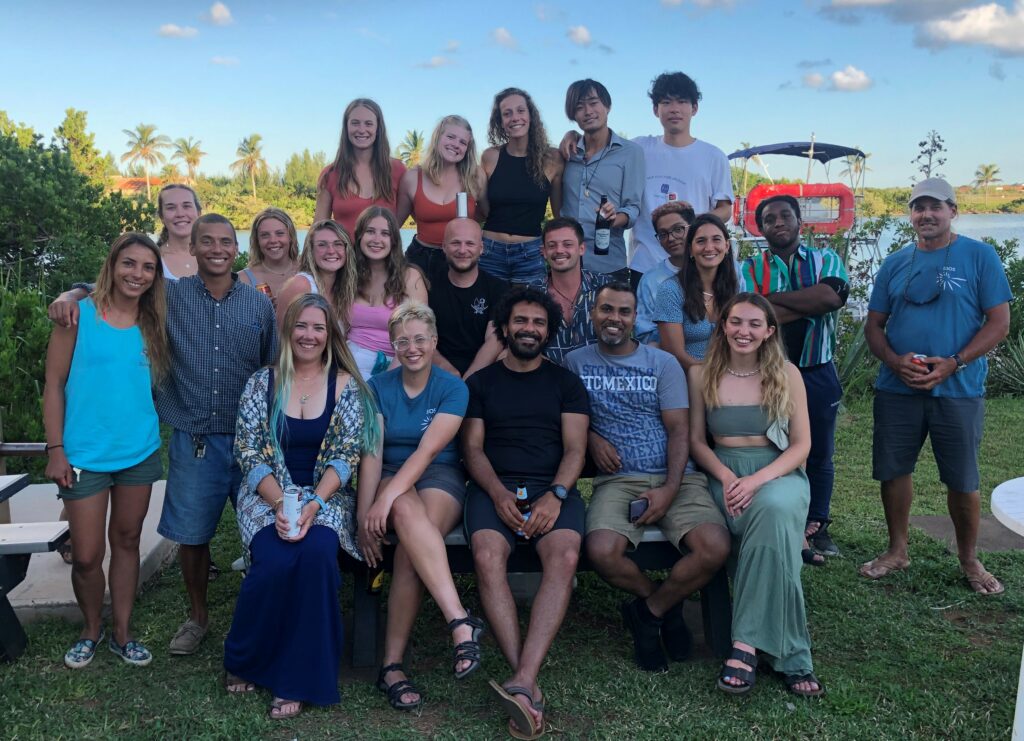

The Fishmongers’ Company has an almost 40-year relationship with the Bermuda Institute of Ocean Sciences (BIOS), a non-profit scientific and educational research centre in Bermuda, working to improve understanding and knowledge of the oceans.
This year (2022) funding from our Fisheries Charitable Trust, which has awarded annual grants for the past three years in honour of former Court Member Maldwin Drummond, has contributed key funding towards 11 students completing internships and summer courses at the BIOS institute, through the UK Associates of BIOS sponsorship programme. These courses provide essential training to students to gain experience and develop the research skills they require to become marine scientists.

Nicole Burt received full funding which enabled her to complete the Research Diving Methods Course. Already an accomplished recreational diver and a graduate of Southampton University, the course allowed her to gain new experience of specialised research dives. She learnt how to conduct surveys monitoring the health and biodiversity of coral reefs, collecting samples and completing experiments. As a result, she is now a fully qualified Research Diver which will open up further career opportunities. Nicole will now be completing a further internship as a teaching assistant for the BIOS Fall program supporting undergraduates with their studies. She said: “I am so excited to increase my skillset and to become a better scientist and educator. I really cannot thank the UK Associates of BIOS enough for believing in me and supporting the start of my career as a marine scientist.”

Pamela Schultz Midence, who graduated with a BSc Marine Science degree last year from the University of the Highlands and Islands, is another student who was granted the opportunity to undertake the Research Diving Methods Training course in Bermuda this year. She said:
“Taking the RMD course has taught me techniques and methods that are currently used in research and surveys and are applicable in many disciplines. Obtaining these extra skill sets gives me the opportunity to apply these and develop further as a scientist. We have trained in a range of methods and techniques, including reef monitoring, in-situ ID and measurements, fish counts surveys, mapping, and reef restoration.”
